Australian Tropical Rainforest Plants - Online edition
Scaevola taccada (Gaertn.) Roxb.
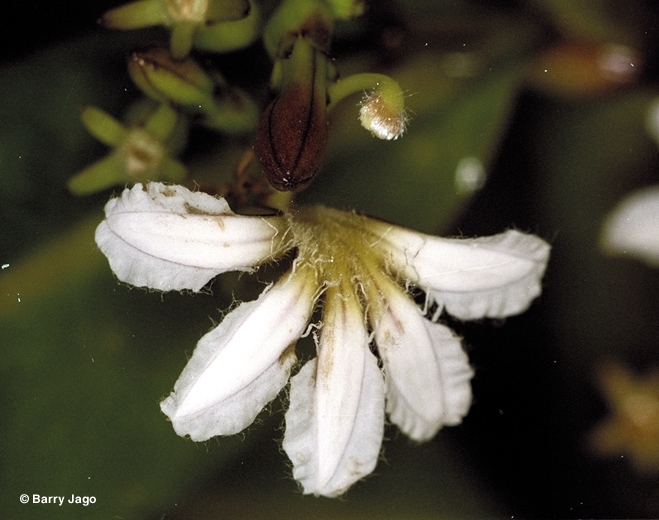
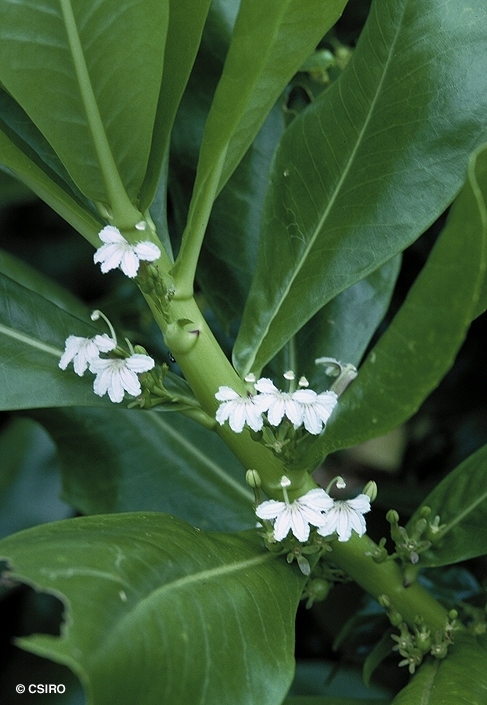
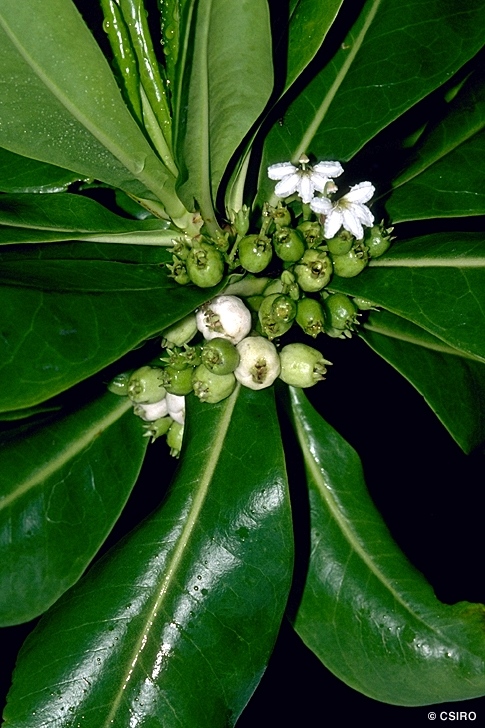
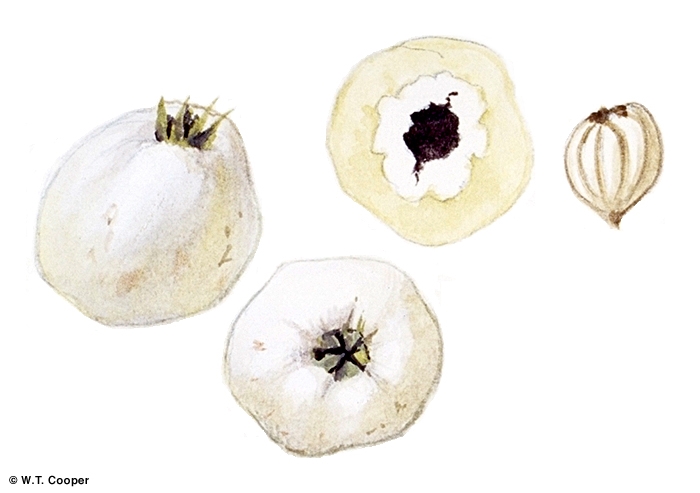


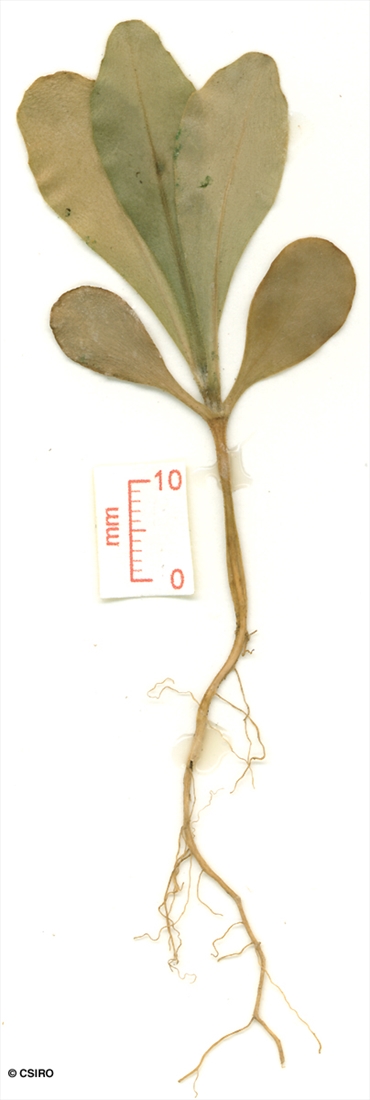
Roxburgh, W. (1824) Flora Indica 2: 146.
Native Cabbage; Cardwell Cabbage; Cabbage, Native; Cabbage, Cardwell; Beach Scaevola; Beach Cabbage; Sea Lettuce Tree; Pipe Tree; Fanflower; Cabbage, Beach
Usually flowers and fruits as a shrub about 1-3 m tall.
Twigs marked by distinctive crescent-shaped leaf scars each having about 8-10 circular scars left by vascular bundles. Leaf blades shiny, thick and fleshy, about 4-23 x 2-9 cm, completely glabrous on both the upper and lower surfaces.
Fruits about 7-13 mm long, white and fleshy but the seeds surrounded by a layer which becomes dry and spongy or corky at or following maturity.
Cotyledons elliptic to obovate, about 15-21 x 8-10 mm, petiole about 6-7 mm long. First pair of leaves fleshy, margins with a few teeth towards the apex, hairy on both the upper and lower surfaces or at least the lower surface. At the tenth leaf stage: leaf blade thick and fleshy, obovate, apex obtuse, base attenuate, sessile, both the upper and lower surfaces of the leaf blade clothed in pale hairs. Conspicuous tufts of white hairs present in the leaf axils. Venation obscure. Seed germination time 32 to 36 days.
Fruit eaten by Cassowaries and Silver-eyes. Cooper & Cooper (1994).





